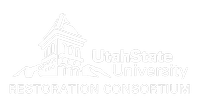Planning for Low-Tech PBR of Riverscapes
Introduction
 We returned to the basic planning steps from the typical restoration process we introduced last semester. Here we use the USDA’s Natural Resource Conservation Service’s Conservation Planning Process (NRCS, 2007), as an example of the restoration planning process and then elaborate on what aspects of that process are distinctive for low-tech restoration.
We returned to the basic planning steps from the typical restoration process we introduced last semester. Here we use the USDA’s Natural Resource Conservation Service’s Conservation Planning Process (NRCS, 2007), as an example of the restoration planning process and then elaborate on what aspects of that process are distinctive for low-tech restoration.
Resources
Lectures
Module 3 Playlist (see here for slides and other info)
Moudle 3 - Workshop Playlist
Half-Day Virtual WorkshopOld 2020 Slides
Manual Resources
This introduction corresponds to Chapter 3 from the Low-Tech PBR Design Manual:
- Wheaton JM, Bennett SN, Bouwes N, Maestas J, and Shahverdian S (Editors). 2019. Low-Tech Process-Based Restoration of Riverscapes: Design Manual. Version 1.0. Utah State University Wheaton Ecogeomorphology & Topographic Analysis Lab. Logan, UT.
Some Examples of Low-Tech Planning Reports
These are some examples to get some inspiration for your homework on preparing a planning report:
| Report Citation | Description | Location |
|---|---|---|
| Anabranch Solutions. 2021. Swale Creek Riverscape Restoration - 30% Design Report. Prepared for Yakama Nations Fisheries Program by Anabranch Solutions, LLC, Newton, UT. | A 30% design (also known as just planning phase) of a small 0.5 mile portion of Trout Creek (tibutary to Klikitat River). See corresponding | Klikitat Watershed, Washington (Project-Scale) |
| Anabranch Solutions. 2021. Trout Creek Riverscape Restoration - 30% Design Report. Prepared for Yakama Nations Fisheries Program by Anabranch Solutions, LLC, Newton, UT. | A 30% design (also known as just planning phase) of a small 0.75 mile portion of Swale Creek (tibutary to Klikitat River). See corresponding | Klikitat Watershed, Washington (Project-Scale) |
| Anabranch Solutions. 2021. Upper Thirty Mile Creek Riverscape Restoration Plan. Prepared for Gilliam County Soil and Water Conservation District by Anabranch Solutions, LLC, Newton, UT. | A coarse plan for approximately 5.7 miles of mainstem habitat within the Thirtymile Creek watershed. See corresponding Fact Sheet | John Day Watershed, Oregon (Project-Scale) |
| Shahverdian S.M., Bennett S., Bouwes N., Purdy S. and Wheaton J. 2020. Ackerson Meadow Alternative 3: Low-Tech Process-Based Restoration Planning & Design Report. Prepared for National Park Service by Anabranch Solutions, LLC, Newton, UT. | A rapid remote planning and design report for NEPA Alternatives Analysis in Yosemitee National Park. | Ackerson Meadow, California (Project-Scale) |
| Shahverdian, S.M., Bennett, S. and Wheaton, J., 2018. Baugh Creek Post-Fire Emergency Restoration – Prioritizing and Planning Post-Fire Restoration in the Baugh Creek Watershed. Prepared for Rebecca Patton by Anabranch Solutions, LLC, Newton, UT. DOI: 10.13140/RG.2.2.17537.71528. | A rapid assessment of current conditions and recovery potential following the 65,000 acre Sharp’s fire to plan for emergency low-tech post-fire restoration. | Baugh Creek, Idaho (Project-Scale) |
| Shahverdian, S., Portugal, E., Camp Reid, J., Macfalrane, W.W., Sorenson, K. and Wheaton, J.M., 2017. Grouse Creek Watershed Restoration Plan: Using Beaver Dam Analogues to Initiate Process-Based Stream Recovery. Prepared for Utah Division of Wildlife Resources by Ecogeomorphology & Topographic Analysis Lab, Utah State University, Logan, UT. DOI: 10.13140/RG.2.2.29281.76641. | The watershed scoping and planning associated with a low-tech PBR demonstration project with Utah Watershed Restoration Initaitive and Utah Division of Wildlife | Grouse Creek, Utah (Network-Scale) |
| Portugal E, Wheaton JM and Bouwes N. 2015.Technical Report: Pine Creek Watershed Scoping Plan for Restoration: Using Beaver Dam Analogs and High-Density LWD to Initiate Process-Based Stream Recovery. Prepared for the Confederated Tribes of the Warm Springs. Logan UT, 52 pp. DOI: 10.13140/RG.2.1.1607.9527 | An example of a Watershed Scoping plan to look at feasability of using BDAs in a small watershed. | Pine Creek, Oregon (Network-Scale) |
See Low-Tech Process-Based Restoration Planning Resources for more examples.
Report Template
This Google Docs LTPBR Report template for can be used as a rough start. We show you how to use it in this video:
Conservation Planning Resources
- Conservation Planning
- NRCS Conservation Practice Standards
-
The NRCS Conservation Planning Process is used in stream restoration and described in:
- NRCS, 2007. Chapter 2: Goals, Objectives, and Risk. In: J. Bernard, J. Fripp and K. Robinson (Editors), Stream Restoration Design: Part 654 - National Engineering Handbook. United States Department of Agriculture - Natural Resources Conservation Service, Washington D.C., pp. 34

